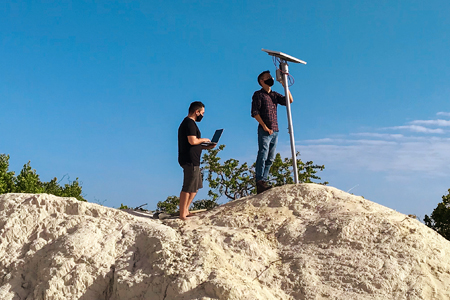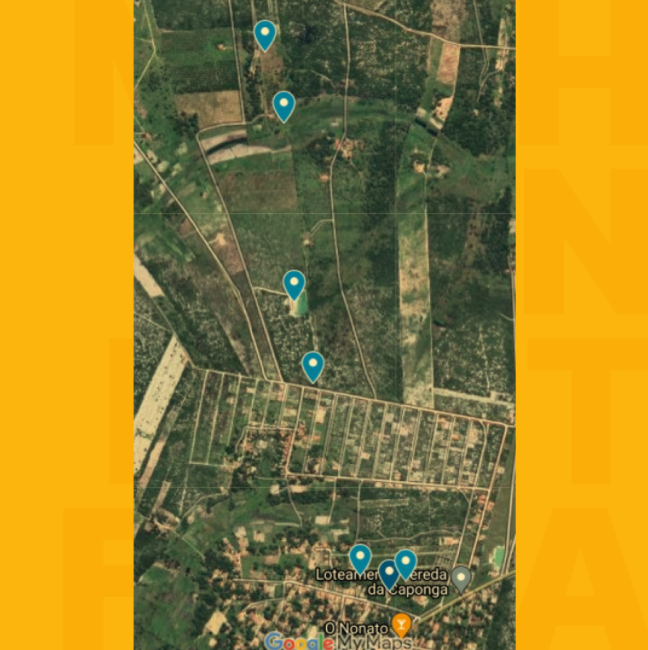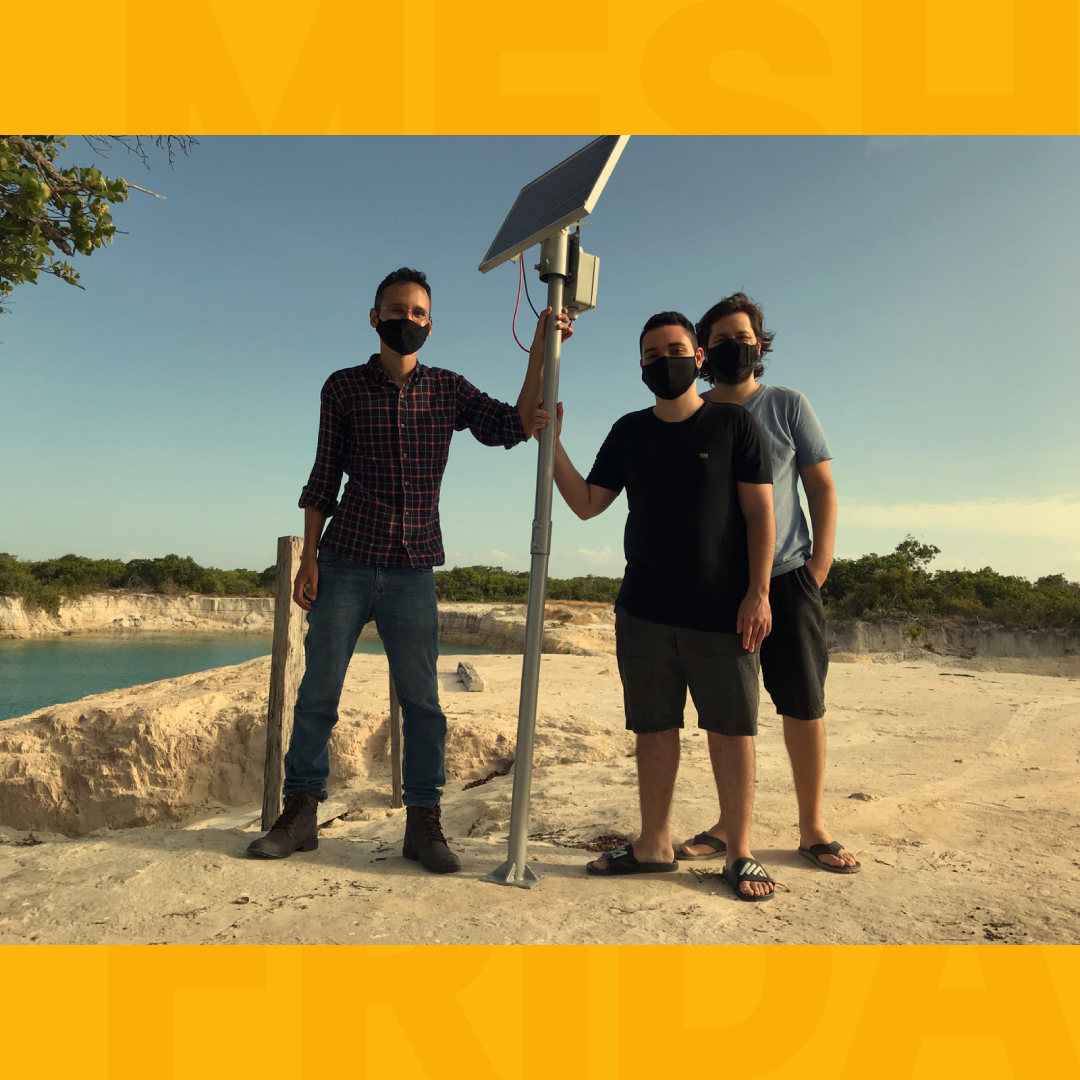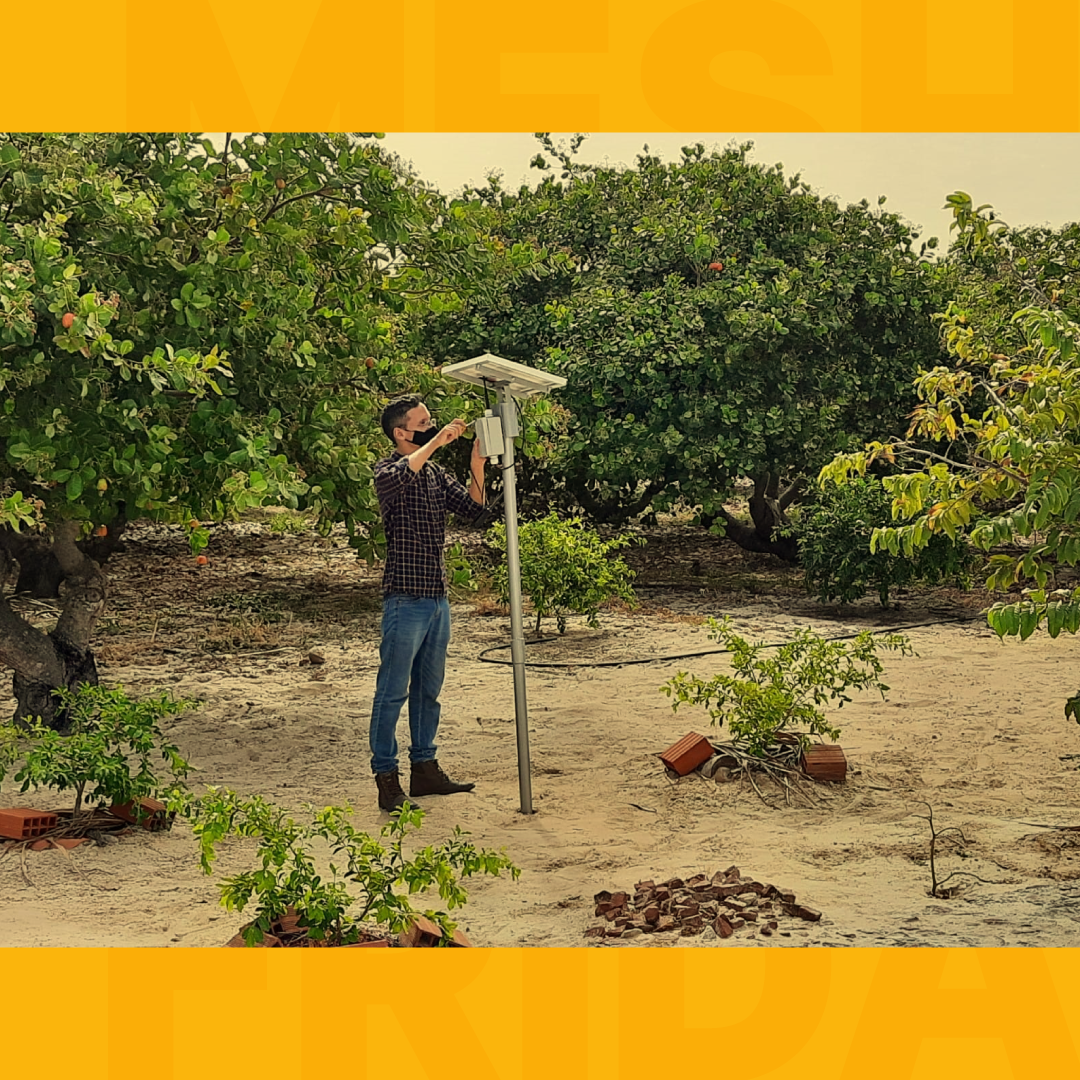CASO DE SUCESSO
Cases de sucesso >
Meshconnect: connecting people in remote areas anywhere in the world

Have you ever thought about connecting people who live in remote areas or who don’t have the resources to access the internet? With the MeshConnect project, which enables internet and connectivity to remote locations using LoRa in mesh topology, this is possible. Atlantico’s solution was selected in 2020 by the Frida Internet Address Registry Program for Latin America and the Caribbean (LACNIC), an international organization that seeks to contribute to the consolidation of a global, open, stable and secure Internet, which was to be completed in August 2021. Tests have taken place in the municipality of Cascavel, a metropolitan region of Fortaleza, allowing the solution to be validated by making a signal that gives access to the internet available in areas that do not have any form of connection.

Project manager Lucélia Saraiva, tells us how the development of the project started in December 2020 and the tests finished in August of this year. “The project’s proposal is to develop low-cost equipment for the construction of an interconnected infrastructure that allows people living in remote and disconnected areas of Latin America, such as the northeast of Brazil, to be connected. The team, led by the leader of the Distributed Systems and Networks platform, Alex Trajano, carried out the verification of the solution’s operation in an area of the Cascavel region. We are very happy with the results and impacts that this project can bring to the lives of the population.”.
About Meshconnect
Meshconnect is a technological innovation that aims to expand internet access into areas that do not have any form of internet connection. “The objective of the project is to build equipment that has a low cost for installation and maintenance, and that can be used to provide basic network services for inhabitants of remote areas, whether through public or private agents”, says Lucélia.
How it works
The solution is based on the creation of a mesh network in which each device communicates with other devices that are within range of a network and whose physical medium is based on LoRa and WiFi (802.11) wireless technologies. This allows access to text chat applications, such as WhatsApp and Telegram for example. With the creation of this mesh, it is possible to enable the routing of network packets that follow the Internet Protocol (IP), making the infrastructure fully adherent to the internet and guaranteeing the interconnection of different networks.
End users can take advantage of network and internet access through WiFi hotspots that ensure interoperability with the user’s own device. The project sought to produce a prototype of this mobile infrastructure device, which is open source, low-cost and allows users living in remote regions to obtain basic Internet services such as messaging applications. “We will be able to reach areas where there is a population that does not necessarily live far from urban areas, but where they don’t have the resources to access the internet for example,” explains Lucélia.
The project also has another greatly important utility, in situations of natural disaster where traditional telecommunications infrastructures are compromised, this technology will continue to function. The technology developed in Meshconnect can be applied in other areas too, such as energy, agriculture and really in any situation where connectivity thus far has not been made available.


From Ceará to the world
Lucélia explains how the solution is applicable to regions where there is no connectivity, regardless of where they are in the world. For the solution to be used, only a single point of interconnection to the Internet is needed. With this simple requirement, it is possible to give access to remote areas through the installation of MeshConnect devices that use communication channels using LoRa. What LoRa does is, allow communication over long distances using communication devices that are low cost and have a low energy consumption, and so can be powered by solar panels.
“End users will be able to enjoy basic Internet services, such as messaging applications, through WiFi hotspots that guarantee a connection to their devices,” explains Lucélia.
Atlantico
Atlântico is a non-profit Science and Technology Institution dedicated to promoting innovation, research and development in Information and Communication Technology (ICT). Founded by CPqD and PADTEC, Atlântico is one of the most prominent ICTs in the Northeast of Brazil in R&D and innovation, and has a focus on transforming innovative ideas into reality.